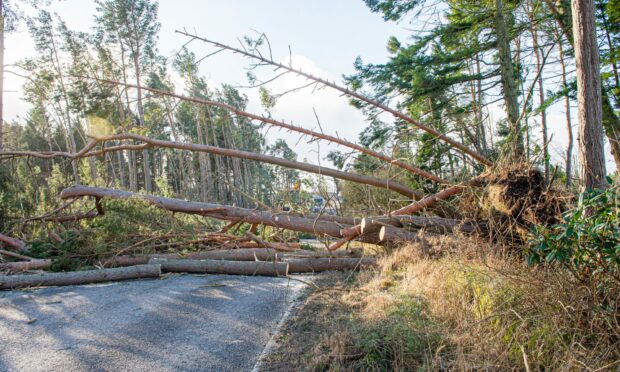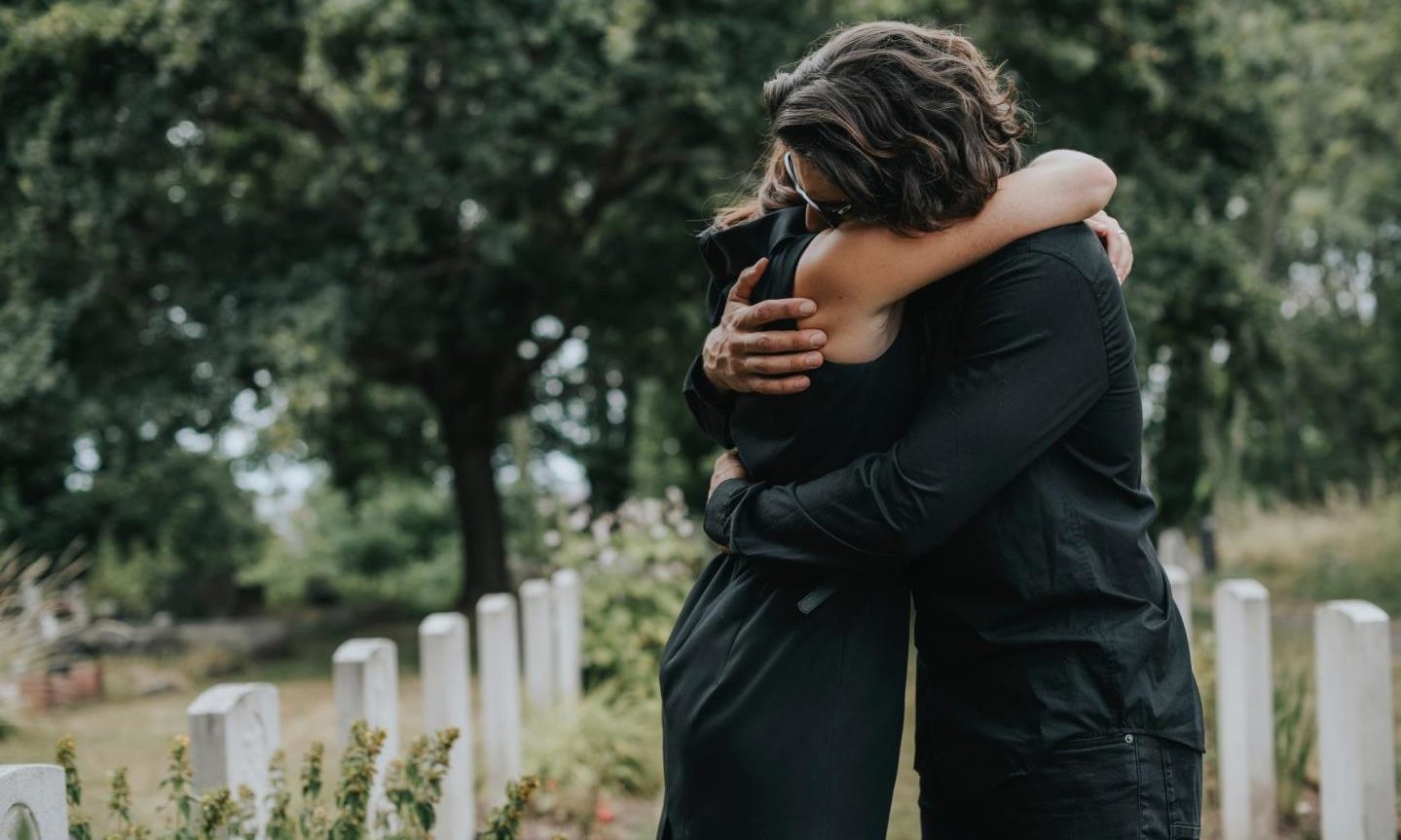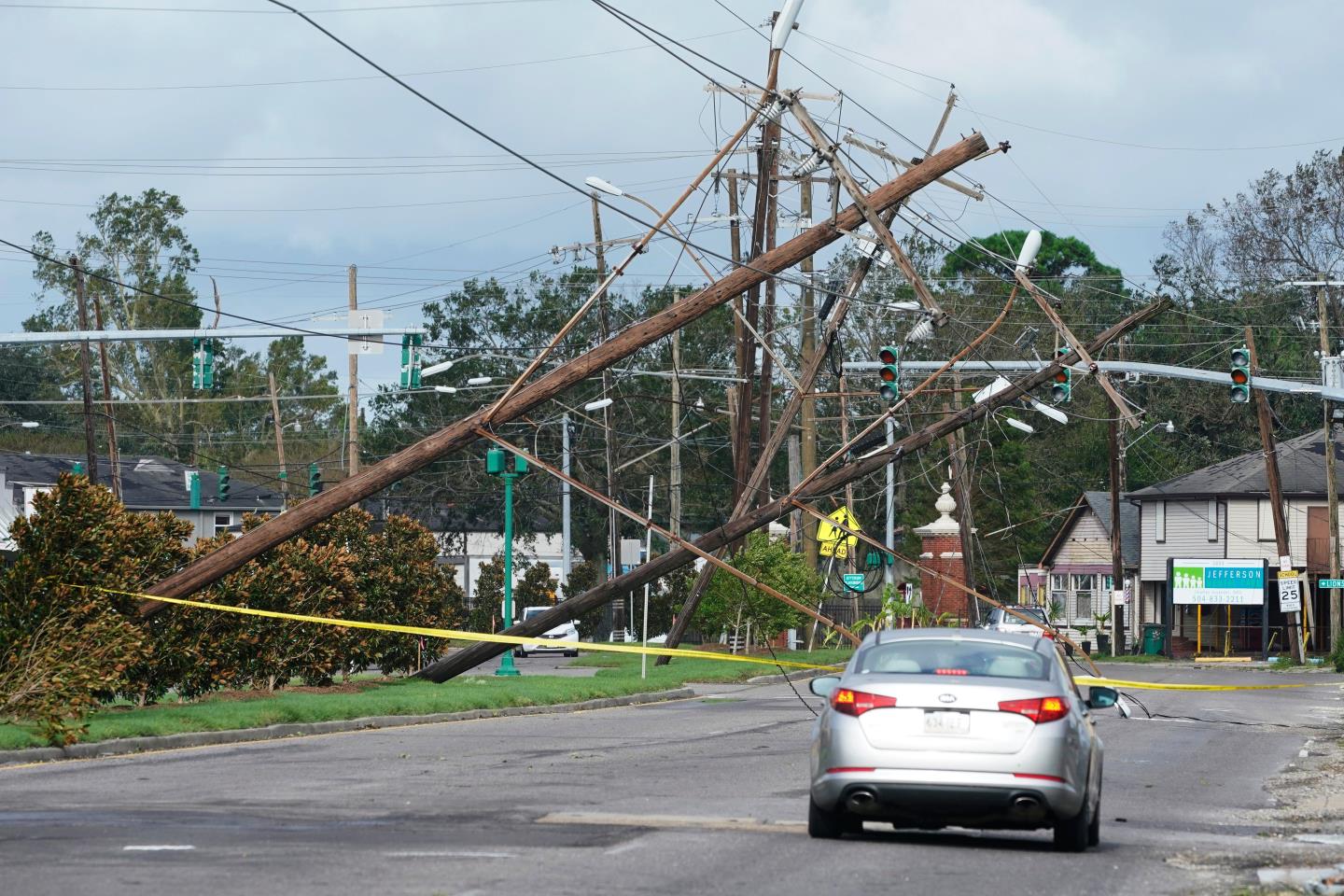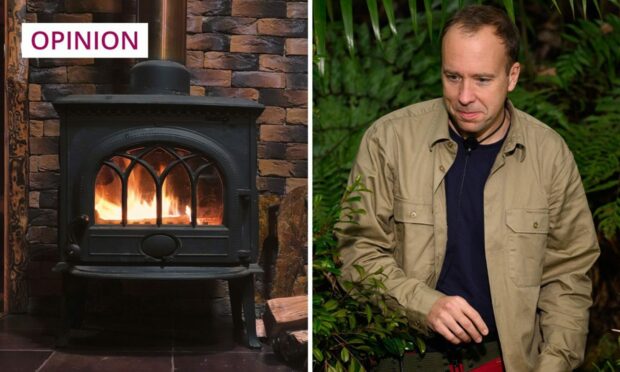We were making our way through normally tranquil Aberdeenshire countryside which now resembled a bomb site – it was shocking to see so many trees toppled by recent storm winds.
One majestic specimen had blocked the road before workmen cut it in half; a thick decapitated trunk now lay on one side and the skeleton of its upper branches on the other.
I am sure the poignancy of these devastating scenes was not lost on fellow travellers heading towards the same destination as us.

A short distance ahead lay a cemetery where a funeral service was arranged for a mother who died in especially tragic circumstances. She was killed in Aberdeen when a tree collapsed during the storms.
My wife was shattered by the news, as she was a much-loved former colleague. So, we can only try to imagine how much worse her family felt.
My wife summed her up like this: gentle and kind with a friendly word for everyone, a woman who would always put herself out to help family and friends.
I’d rather not intrude any further into the specifics of the service out of respect for the family’s privacy. But my wife’s fond memories mirrored loving tributes which shone through the darkness of this sad occasion.
There was warmth and comfort in these heartfelt words; even a touch of humour here and there, which I think is vital in coping with death.
Unexpected grief is especially hard to deal with
Grief comes in many forms over the loss of anything dear to us, but a life robbed before its time by a sudden and unexpected twist of fate must be the hardest challenge to deal with for loved ones.
Not since wartime has the nation grieved so much from personal loss after Covid also left its own trail of destruction. Most of us have been touched by it in some way.
In the meantime, the cycle of life – and death – goes on in other forms, such as this tragic case where someone was taken far too young.
“One minute you are here, the next you are gone” is a sombre phrase we are all familiar with, and it always reminds us of our own mortality.
Most of us have also had close scrapes or near misses which send a shiver down our spines as we recall them.
My wife and I fell downstairs at our home; not together at the same time, I am relieved to add. Ironically, my wife was rushing to leave for a hospital appointment.
We both escaped with bruising, but it could have been easily much worse.
Climate change brings with it new dangers
What does fate hold in store with climate change?
Fearsome storms taking lives, felling trees like matchsticks and costing millions are the most visible recent signs that something drastic is happening.
These scenes of hurricane devastation always used to happen somewhere else such as the Caribbean or US. We could watch on TV from far away in our cosy living rooms.
There are several towering trees overshadowing our living room in Aberdeen which display the characteristics of so many urban trees these days. They are mature, some completely dead, and others in the process of dying and rotting away.
They are popular with woodpeckers dining out on bugs which invaded the weakest trees and killed them off in the first place.
A couple of our neighbours are also directly in their path, if they were ever uprooted and fell onto our cottages.
They took it up with the council – without success – in an attempt to have them lopped or removed. I believe one tree has a preservation order while much around it is dying.
The extraordinary thing is that, despite everything nature has thrown at these worn out giants in recent years of worsening storms, they are still standing. Either their root systems have adapted and dug in for a fight, or it’s only a matter of time.
Storms are turning trees into weapons
But even healthy trees come crashing down due to a domino effect or other factors such as ground conditions.
I came across a climate change report by a leading expert, published almost seven years ago, on the future of urban trees in Scotland.
A worrying claim was that many urban residents took these giants living around them for granted
It seems most city tree managers inherited a messy legacy of old and dying trees along with shrinking council budgets to tackle the problem. And that was before Covid pressures.
A worrying claim was that many urban residents took these giants living around them for granted.
It’s time we paid more attention to how they are managed, especially as super storms are transforming them into weapons of mass destruction.
David Knight is the long-serving former deputy editor of The Press and Journal








